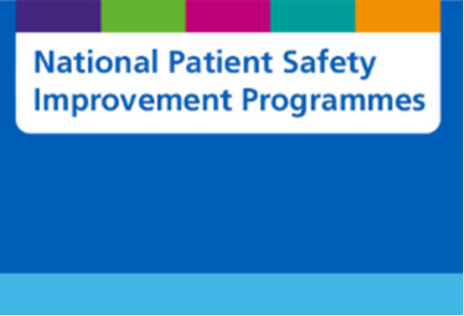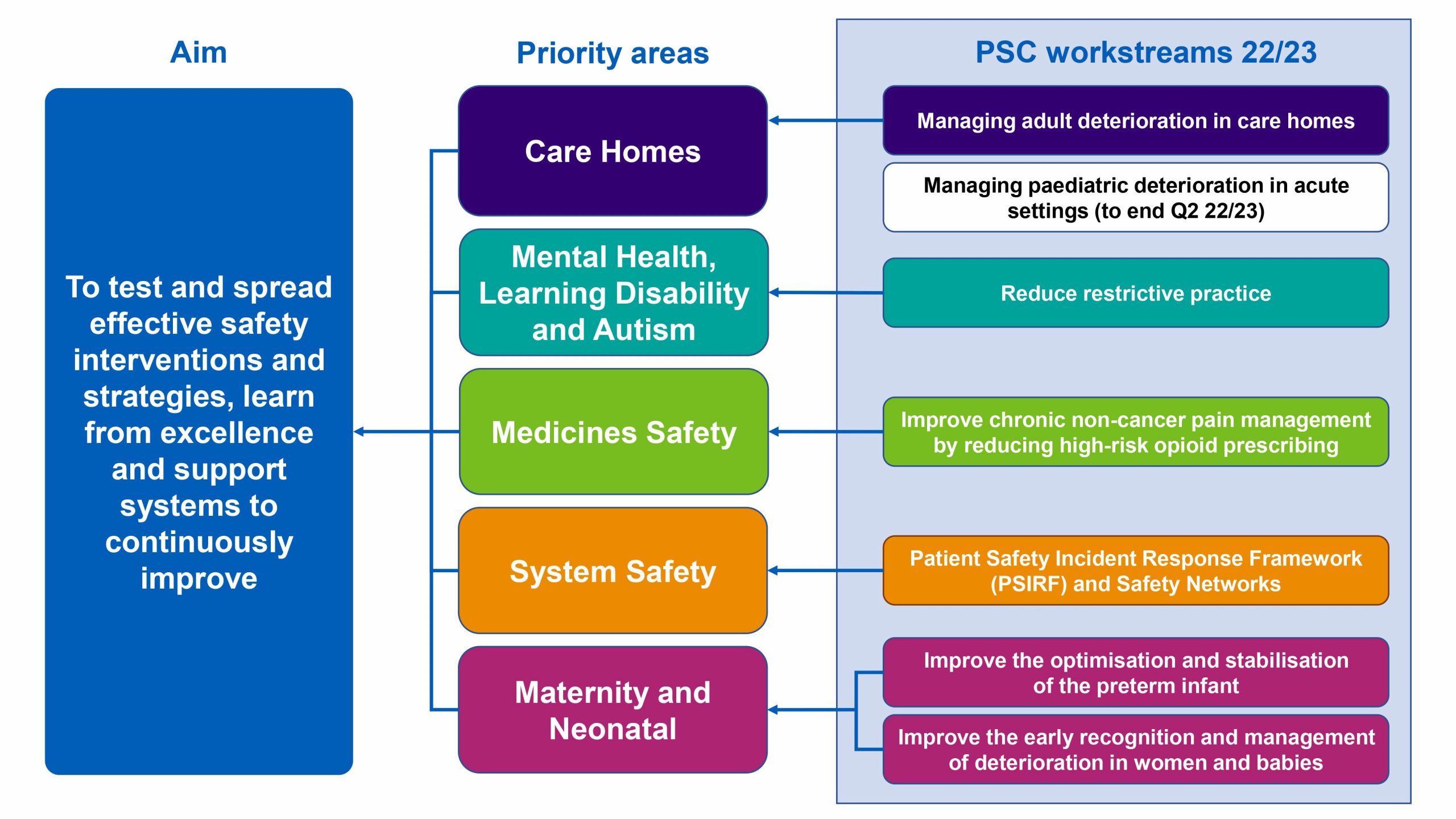Find out more
Contact us to find out more about our Patient Safety Collaboratives.
Get in touch
England’s 15 Patient Safety Collaboratives (PSCs) are funded and nationally coordinated by NHS England and hosted locally by the Academic Health Science Networks (AHSNs). They deliver the National Patient Safety Improvement Programmes (NatPatSIP), which are a key part of the NHS Patient Safety Strategy, and collectively form the largest safety initiative in the history of the NHS. The programme’s aim is to continually reduce error, harm and death as a result of failures in the system, so the NHS becomes comparable with the safest health care services in the world by 2025. They do this by working with maternity units, emergency departments, mental health trusts, GP practices and care homes in the following areas:
Culture: They promote positive safety culture, encouraging staff to gain insight and share learning from both good and poor practice.
Evidence-based improvement: They support evidence-based, quality improvement (QI) methodology, ensuring change is consistently measured and evaluated.
Quality improvement (QI) capability: They grow QI capability in trusts and local healthcare systems so they can continue to improve.
System-level change: They enable regional and local health systems to identify improvement priorities and share learning. The programme has had several achievements to date, including:
• 100% of ambulance trusts and 98% of acute trusts have adopted the National Early Warning Score (NEWS).
• A standardised benchmarking tool (LPZ) for care homes: predicted £4.5m savings by reducing pressure sores, if scaled up over three years to 500 care homes, a saving of £3,440 per home.
• Acute kidney injury projects resulted in 30-day mortality reduction by 47%.
• Safety huddles aimed at falls: showed a 107% return on investment, giving £2 back for every £1 spent.
• A catheter associated urinary tract infection collaborative achieved a 30% reduction across the participating trusts.
• During 2019/20, 71% of emergency units had adopted the ED safety checklist.
• During 19/20, 82% of eligible mothers had received MgSO4 through the PReCePT programme. The NatPatSIP’s current work is focused across five safety improvement programmes, as shown in the below ‘driver diagram’.

Key enablers
The delivery of the five programmes is shaped by the following key enablers: